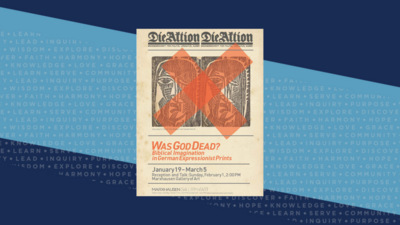Why Get a Math Minor or Concentration?

Math – it's one of the core subjects in U.S. schools from the elementary level to the collegiate level, but one that many students cite as their least favorite. Nevertheless, mathematics is an extremely versatile area of study, with knowledge and skills in the subject making college graduates more marketable in virtually any field. For students who do not wish to declare a math major in college but still want to expand upon their mathematics skills, at Concordia University, Nebraska, adding a math minor or concentration is a perfect choice!
A minor in mathematics can align with majors of all types. Students who choose to add a math minor at Concordia will take classes in calculus, statistics, and mathematical structures/logic, as well as two math classes of their choosing, for a total of 20-21 credits. The skills that students develop by taking these courses – critical thinking, problem-solving, quantitative reasoning, and more – are applicable to majors from accounting to physics and beyond. Numbers are all around us, and having the skills to manipulate and understand them can add to any prospective employee’s resume.
Consider, for example, a student who’s studying environmental science in the hopes of becoming an environmental engineer. Many of this student’s duties in future careers are likely to include research or close work with quantitative data to examine the best strategies for reducing pollution, waste or improving environmental health. Knowing how to deal with and manipulate numerical data in a career like this is indispensable, and students who take courses in the field of mathematics will become skilled in this area.
However, most students don’t discover a love or even an appreciation for mathematics in college; it happens sooner, even as early as their elementary school years. Students need teachers at all levels who have this appreciation for mathematics themselves, and are ready to present it as a subject that is versatile and understandable, not scary or “just” a requirement – and that’s where future educators come in.
At Concordia, students have the option of majoring in early childhood, elementary, middle level, special or secondary education. Each program includes the option of declaring a concentration or endorsement, meaning students will have unique skills and preparation for teaching content in a particular field, such as mathematics. Concordia prepares its education majors to serve their own students by instilling in them confidence and self-esteem with which they can face their studies. Those who choose to declare a math concentration will teach future generations to love and appreciate the broad discipline of mathematics.
The world needs more educators who are passionate about math, teaching students to use it and love it. Teachers in Lutheran schools can incorporate Jesus’ message of love with their presentation of subjects like math, increasing students’ confidence that their worth is based on how God sees them, not the grades they get in school. Math can be a difficult subject to learn, but under educators who are joyful, well-prepared with a solid basis in mathematics and their faith, students will flourish.
Finally, math is one of the most foundational areas of study. In a manner of speaking, several other fields find their basis in the discipline of mathematics. Many of the natural sciences involve numerical analysis of data and can be explained by intricate mathematical principles. Likewise, the fields of accounting and business utilize mathematical analysis to determine profit and loss, tax rates or budgets. Even the social sciences use math – usually statistics – to conduct research and summarize findings.
If the numerical basis of what you’re learning in your major classes fascinates you, or you are passionate about providing your future students with an appreciation for mathematics, declaring a math minor or concentration could be one of the most rewarding choices you make during your undergraduate career. Numbers are everywhere, and being able to understand and analyze them can be an invaluable skill in many unique careers.
Are you interested in taking math courses at Concordia? Learn more here.
Related Stories


